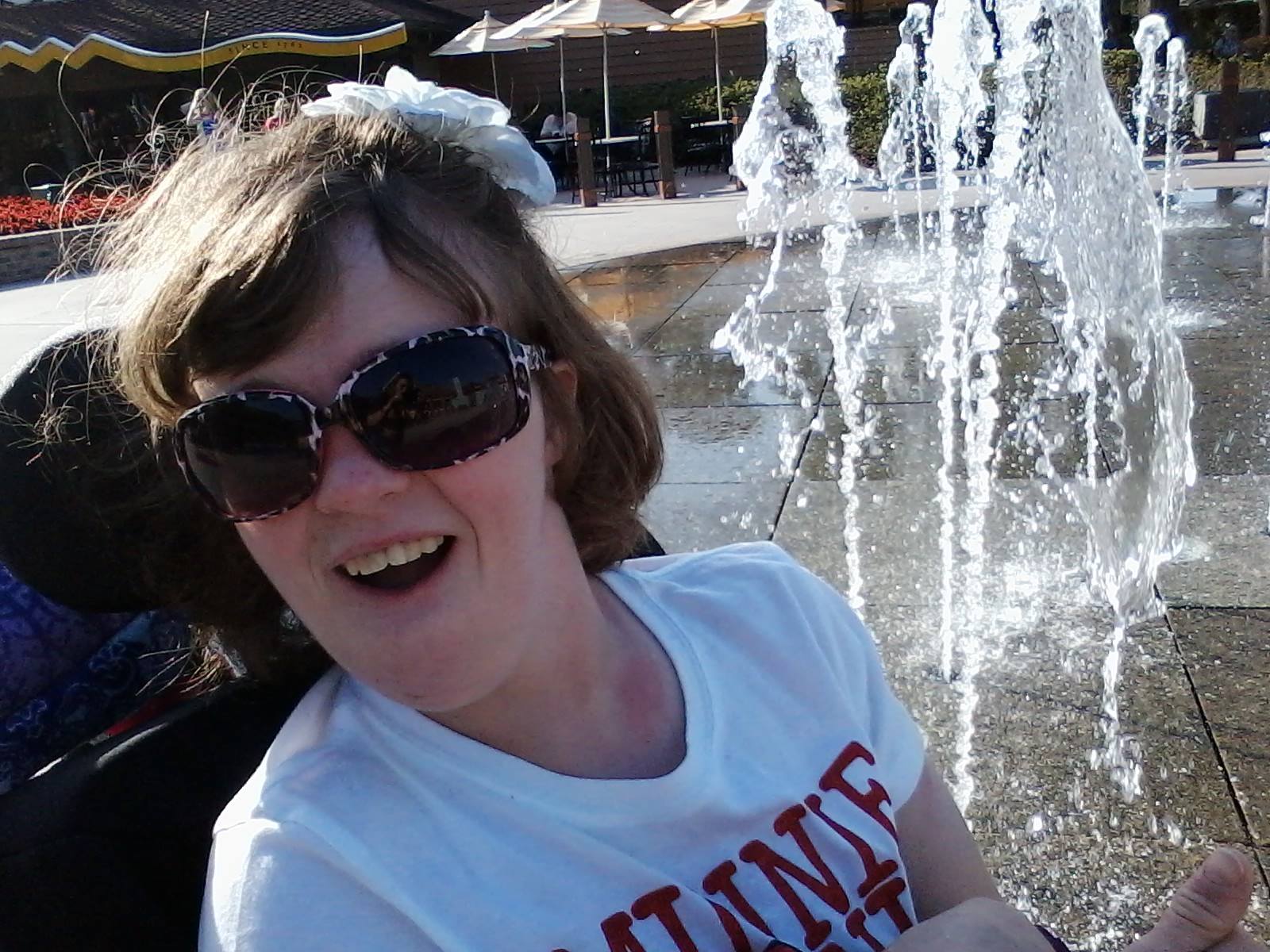Wilkesboro Family Stays Active and Advocates for People with Disabilities
 Merlie Hayslett Jackson, of Wilkesboro, NC, tossed out her Webster's Dictionary a long time ago. She learned when people approached her about her daughter, Jessie, using the words "can't" and "no" that she needed to rewrite the definitions so it reflected her attitude about life – "we just need to find a way to make this happen."
Merlie Hayslett Jackson, of Wilkesboro, NC, tossed out her Webster's Dictionary a long time ago. She learned when people approached her about her daughter, Jessie, using the words "can't" and "no" that she needed to rewrite the definitions so it reflected her attitude about life – "we just need to find a way to make this happen."
So during the 13 years Merlie and her husband David searched for the reason their daughter began to fall, to slow down, to stop walking and talking, Merlie made sure Jessie stayed active doing all the things Jessie loved to do from riding Harleys to horses to playing baseball and more.
Six years after being diagnosed with Gangliosidosis-1 (GM-1), a progressive neurological genetic disorder caused by the absence of a vital enzyme, and hearing their fill of "no" and "can't", Jessie and her parents are busier than ever! Although nonverbal and in a wheelchair, 24 year old Jessie is ready for her first two-mile Harley ride coming up this summer. She just participated in a 68 motorcycle caravan taking a trip to Danville, VA, exploring the back roads of North Carolina while riding in her parents' mini-van. Then, this Harley gal switched her motorcycle gear for a sparkly, lavender prom dress and attended the Joy Prom with several of her friends, looking like the princess she truly is.
"If you just sit, and this is for anyone with or without disabilities, your mind is going to run away with you and it'll eat you alive," explains Merlie as she lists the activities Jessie participates in throughout the year. Those activities also include learning as much as they can about GM-1 and meeting other families facing that challenge.
For the fourth time, Merlie and her husband David, packed up Jessie and headed to the annual National Tay-Sachs and Allied Diseases Association (NTSAD) conference with help from the North Carolina Council on Developmental Disabilities (NCCDD). Funds from the NCCDD's Jean Wolff-Rossi Fund for Participant Involvement (Rossi Fund) paid for the Jackson family's conference registration and travel costs via van to Florida where this year's conference was held.
The Rossi Fund empowers people with intellectual and other developmental disabilities (I/DD) and their family members with opportunities to actively participate in decisions that often impact them personally. Through the Rossi Fund, individuals with I/DD and their family members can receive reimbursement for specific expenses for seminars and conferences designed to improve their knowledge, networking and skill levels for advocacy.
"Without the help of NCCDD, we're not sure we could have pulled off this year's conference," admits Merlie. Additional funds for lodging, food and outings at the conference came from a year-long fundraising process which included everything from a children's clothing sale to a Go Fund Me page.
Explaining the power of the conference, Merlie says, "You will love it, you will hate it, you will cry and then you'll count the days until the next one."
This year's conference had 334 attendees with 21 of those being children affected by GM-1. Families came from as far away at United Arab Emirates, the Philippines and Germany. Thirty-three researchers, clinicians and industry partners were also in attendance with a group gathering data to help with clinical trials. The clinical trials were the big news announced at the conference and Jessie will be a part of the group being considered for trial participation.
While Jessie is the oldest known woman with GM-1 by the doctors at the National Institute of Health in Washington D.C., she much prefers her back-home notoriety in Wilkesboro where she is the reigning princess at Crossroads Harley-Davidson.
Check out how much fun Jessie had during a her Ride to Bike Night!